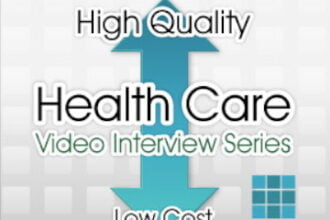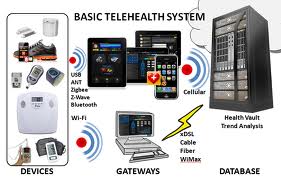Todd Minnigh is a familiar face in the AHRA community. As a frequent conference attendee and speaker, he has presented on a variety of topics because he has seen and experienced a great deal throughout his career. In a new role within Carestream, Minnigh’s responsibilities have allowed him to travel the world to get a closer look at how other countries are practicing medical imaging and addressing important trends such as dose reduction and process efficiency.
Todd Minnigh is a familiar face in the AHRA community. As a frequent conference attendee and speaker, he has presented on a variety of topics because he has seen and experienced a great deal throughout his career. In a new role within Carestream, Minnigh’s responsibilities have allowed him to travel the world to get a closer look at how other countries are practicing medical imaging and addressing important trends such as dose reduction and process efficiency.
He took the time to answer a few questions related to the presentation he will be giving at AHRA 2014, “Patient Care, Over There: What We Can Learn from Radiology Practices Around the Globe.” The presentation will be taking place on Monday, Aug. 11, from 4:00-5:00 p.m. and Wednesday, Aug. 13, from 10:00-11:00 a.m.
When it comes to patient care, is there a difference in defining patient satisfaction among countries? Are they looking at different factors?
Minnigh: The biggest difference is probably not what satisfies the patient, but how it is measured. In the U.S., under the ACA, we use the Hospital Consumer Assessment of Healthcare Providers and Systems (HCAHPS) survey. It looks at things like responsiveness of the staff and the quietness of the hospital. In many industries, Net Promoter Score (NPS) is considered a best practice. It measures the likelihood that customers will recommend you or refer others to you. In the end, folks will move their efforts toward improving whatever they measure.
What are the biggest challenges facing productivity and workflow issues today?
Minnigh: The most common challenge is having sufficient budget for expertise and technology. This is true everywhere, more in some locations than others. The technology and processes exist today to make almost any place more productive. The trick is to know exactly what you need, how to implement it and how to pay for it.
What are some of the differences in technology adoption you have seen from around the world?
Minnigh: There are many. The most interesting for folks from the new world may be that many countries overseas have PACS, but still print all their images to film. In some cases this is for archive, referring physicians and/or because the patient expects a copy.
What are some approaches to radiation dose management that you have seen around the world but are not as prominent in the U.S.?
Minnigh: In Germany, radiation dose is very carefully managed. This is one reason portables are limited in the emergency department. Scatter reaches other patients even though they may be ‘far away’ by our way of thinking. Also every machine has a DAP, or Dose Area Product Meter, right on the collimator to determine the amount of radiation the machine produced. Carefully tracking this is a common practice in Europe and is becoming much more common here now too.
What’s the most important lesson AHRA members can take away from the practices you’ve seen around the world?
Minnigh: The most important lesson is to think outside the box. There are other ways to do things, other priorities to consider. We get very focused on what we do and doing it better, we often don’t consider if it could be done in an entirely different way or if it really needs to be done at all.
Todd Minnigh is the vice president of worldwide sales and marketing development at Carestream. His talk at AHRA 2014, “Patient Care, Over There: What We Can Learn from Radiology Practices Around the Globe.” will be taking place on Monday, Aug. 11, from 4:00-5:00 p.m. and Wednesday, Aug. 13, from 10:00-11:00 a.m.






